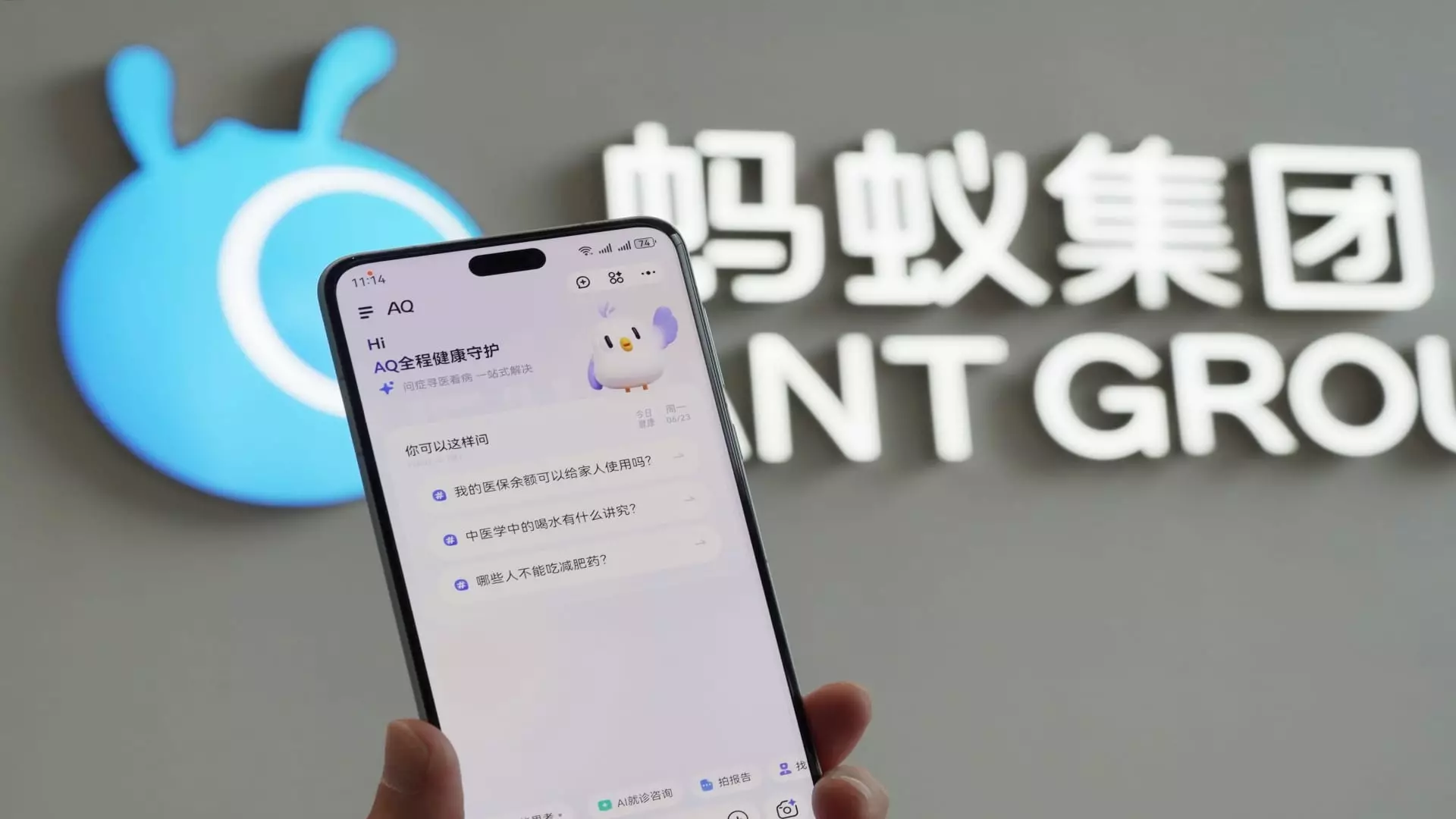Ant Group, the fintech juggernaut affiliated with Alibaba, is once again flexing its technological prowess, this time venturing boldly into the realm of healthcare through a new smartphone application called AQ, or “Answer Your Question.” While some might view this move as a mere extension of their mobile payments platform, it represents a much deeper narrative about the intersection of technology, healthcare, and society—a narrative that is both promising and cautionary.
This novel initiative highlights how artificial intelligence (AI) can be leveraged to address real-world issues in healthcare, an area where China is rapidly advancing. With the launch of AQ, users have the ability to consult AI avatars modeled on real-life medical professionals, granting them virtual access to healthcare resources and expertise. This capability signifies a critical shift not only in how healthcare can be delivered, but also in how patients interact with the medical system. Ant Group seems intent on revolutinzing the patient experience by providing immediate access to healthcare knowledge, thereby tackling a pervasive problem faced by many—namely, the inefficiencies and long wait times that characterize traditional public health services.
AI’s Role in Global Health Innovation
The implications of Ant Group’s advancements extend beyond national borders. Zhang Junjie, the general manager of health care at Alipay, notes that the technology could potentially be utilized internationally, hinting at plans to roll out AQ in multiple languages. This pivot towards global applicability is a stark reflection of the broader ambitions these Chinese tech companies harbor. They’re not just looking to serve their immediate market; they’re eyeing a piece of the global healthcare market as well, and they possess the tools to make it happen.
This is where the larger conversation about digitalization in healthcare becomes salient. While Chinese companies are actively integrating AI into health systems, they do so within a context that is uniquely supportive; a large and accessible data pool paired with a national health insurance system that reaches a staggering 95% of the population. This combination of resources creates fertile ground for AI applications, making it easier to adapt to innovative technologies. In stark contrast, many Western nations struggle with a fragmented healthcare landscape, often at odds with their own regulatory frameworks. In this respect, Ant Group and other tech giants are not just participants in the new frontier—they are pioneering a transformative wave that other countries may find challenging to emulate.
Caution in Innovation
However, while this leap into AI-driven healthcare is undeniably audacious, it raises critical questions about privacy, data security, and the human element in medical treatment. The notion of consulting an AI for sensitive health concerns is a double-edged sword. On one hand, it democratizes access to medical information and contributes to efficiency; on the other, it risks reducing the vital human interaction that is often crucial for patient care. Just how reliable will these AI avatars be? Can they adequately replace the nuanced understanding of human doctors who have spent years honing their craft? These are dilemmas that ought not to be glossed over in the rush to embrace technological advancements.
Moreover, as Ant Group and their competitors—like Tencent and Ping An Insurance—drive this transformation, there lies an ethical responsibility to ensure that these technologies serve the public good rather than exacerbate existing inequalities. The expansion of healthcare access must go hand-in-hand with considerations of fairness, accountability, and transparency.
The Future of Healthcare: A New Horizon
As AI continues to scaffold healthcare infrastructures worldwide, the insights from China’s approach could very well inform future policies and systems in other countries. With both opportunities and pitfalls accompanying this technological evolution, it is imperative for stakeholders—be they tech companies, healthcare providers, or regulators—to tread thoughtfully as they navigate this uncharted territory. The changes happening in healthcare, spurred by advancements in AI, are a clarion call for us to re-evaluate what it means to care for one another in an increasingly digital age.
In the fray of innovation, the blending of technology and empathy will determine whether we forge a future that genuinely enhances the human experience within healthcare or one that fundamentally undermines our connections to it. This journey is just beginning, and the world—including the patients it aims to serve—must remain vigilant and engaged as it unfolds.

